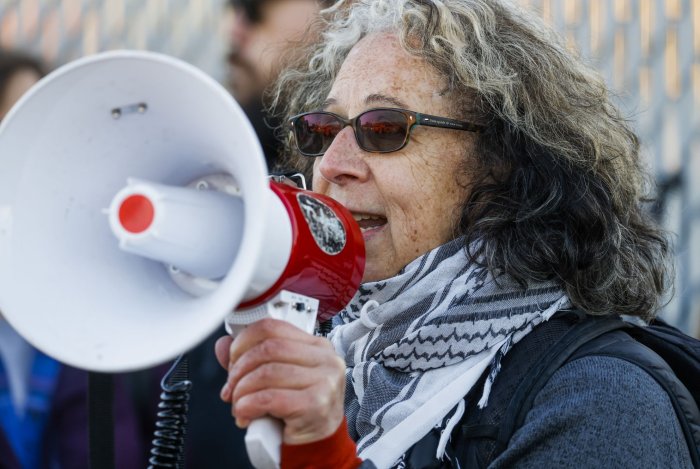Navy Cruiser Joins Caribbean Flotilla As Reports Claim U.S. Is Readying Venezuela Strikes (Updated)
The U.S. Navy is continuing to build up its forces in the Caribbean amid reported claims that an attack on Venezuela could be imminent. The Ticonderoga class guided missile cruiser USS Gettysburg is now in the region, a U.S. Navy official told The War Zone. The Gettysburg adds to a current force of eight other warships deployed as part of enhanced counter-narcotics operations also aimed at Venezuelan dictator Nicolas Maduro. In addition, as we have previously reported, the USS Gerald R. Ford carrier strike group has also been ordered to the region, but is not expected to arrive for at least another week.
The Gettysburg is the second cruiser to take part in the operation, joining the USS Lake Erie. The vessels in this class bring a great deal of additional firepower and other capabilities to the flotilla now arrayed in the Caribbean. You can read more about the status of America’s dwindling fleet of cruisers here.
News about the Gettysburg deployed to the Caribbean comes as the Miami Herald on Friday reported that U.S. strikes on targets inside Venezuela “could come at any moment.”
“Sources told the Herald that the targets — which could be struck by air in a matter of days or even hours — also aim to decapitate the cartel’s hierarchy,” the publication reported. The outlet added that it is unclear if that means taking out Maduro. The Venezuelan leader was indicted in a New York federal court in 2020, during the first Trump presidency. He and 14 others, including several close allies, were hit with federal charges of narco-terrorism and conspiracy with the Colombian FARC insurgent group to import cocaine. There is now a $50 million bounty for his arrest.

The Herald story follows reporting on Thursday by the Wall Street Journal that the Trump administration “has identified targets in Venezuela that include military facilities used to smuggle drugs.”
While the Journal says that President Donald Trump hasn’t made a final decision yet on ordering strikes against land targets, anonymous officials told the paper that “a potential air campaign would focus on targets that sit at the nexus of the drug gangs and the Maduro regime.”
The potential targets under consideration “include ports and airports controlled by the military that are allegedly used to traffic drugs, including naval facilities and airstrips, according to one of the officials,” the publication added.
Trump has since outright denied that he is considering strikes on Venezuela.
The president replied “no” when asked by reporters on Friday aboard Air Force One if it was true he is weighing whether to attack military sites in Venezuela. He said “no” again when asked if he had decided on the matter.
A White House spokesperson further pushed back on any assertion that an attack was imminent.
“Unnamed sources don’t know what they’re talking about,” Anna Kelly, a White House spokesperson, told The War Zone. “Any announcements regarding Venezuela policy would come directly from the president.” Kelly did not answer our questions about when that decision might take place or what targets, if any, have been identified.
A U.S. official we spoke with on Friday morning was not aware of any imminent plans to attack Venezuela.
“While it does not appear that such an attack would take place in the coming hours, the U.S. military will be ready to execute at the POTUS’ direction,” said the official. “We are poised to execute any orders given to us.”
While Trump has stated that he is eyeing land strikes on drug targets in Venezuela, so far, attacks have been limited to what the Pentagon asserts are drug smuggling boats. Several strikes have resulted in multiple deaths of suspected drug smugglers.
These attacks have come under intense criticism for being carried out without evidence or the consent of Congress.
Regardless of the timing of a large-scale attack, U.S. Navy vessels appear to be sailing closer to Venezuela. Satellite imagery shows that the Wasp class amphibious assault ship USS Iwo Jima and an unidentified Arleigh Burke class guided missile destroyer have come closer than 125 miles from La Orchila, one of Venezuela’s outlying islands. The U.S. Navy official we spoke with declined to confirm the specific location of the Iwo Jima or any other vessels.
In another potential sign of future operations, the U.S. just closed airspace off the Puerto Rican coast, designating it “National Defense Airspace.” Pilots not adhering to the notice to airmen (NOTAM) are subject to being intercepted, detained and having criminal charges levied against them.
The NOTAM is adjacent to José Aponte de la Torre Airport, home to a significant deployment of forces, including F-35s. You can read more about the airport’s role in the ongoing operations in our story here.
Meanwhile, as the U.S. continues to build up forces in the region, the Pentagon is assessing what, if any, resources will be deployed to provide humanitarian relief efforts in the wake of Hurricane Melissa. The storm was a Category 5 hurricane when it slammed into Jamaica and Haiti, causing tremendous destruction.

U.S. Southern Command on Friday announced that Joint Task Force-Bravo deployed to Kingston, Jamaica, “on a mission to provide humanitarian and disaster relief assistance following Hurricane Melissa,” the command said in a statement.
“Three CH-47 Chinooks from the 1st Battalion, 228 Aviation Regiment, carried 40 service members and supplies as part of the initial effort to provide immediate, lifesaving and humanitarian support,” the statement continued. “The advance team will set up operations in Kingston to prepare for the arrival of additional personnel and equipment via three UH-60 and two HH-60 Blackhawks. Upon arrival, they will provide ongoing U.S. disaster relief assistance missions requested by the government of Jamaica.”
“Historically, U.S. military capabilities are needed most in the critical early stages of a disaster relief operation, when fewer resources, capabilities and disaster-response experts are available to help victims and impacted communities,” SOUTHCOM added.
The ships and troops of the Iwo Jima Amphibious Readiness Group (ARG)/22nd Marine Expeditionary Unit (MEU), already in the region as part of the counter-narcotics mission, could also potentially be deployed for relief efforts. In addition to more than 4,000 Marines and sailors, the ships in the ARG/MEU have Landing Craft Air Cushion (LCAC) hovercraft, CH-53, UH-1 and MH-60 helicopters, MV-22 Osprey tilt rotor aircraft and AV-8B Harrier II attack jets that could be beneficial in any crisis response.

While these units have responded to post-storm relief efforts in the region in the past, no tasking has yet been made for Melissa, the official told us.
“It is too early to say if the 22nd MEU will be deployed for any humanitarian relief efforts,” the official posited.
Regardless, assigning assets for relief efforts will not affect the counter-narcotics operation, SOUTHCOM said.
“SOUTHCOM is mission-ready to support both missions as required,” Army Col. Emanuel Ortiz, a SOUTHCOM spokesman, told us.
While it is publicly unknown what Trump’s plans are concerning Venezuela or Maduro, the addition of the Gettysburg is one more asset the president can call on should he decide to attack.
Update: 2:43 PM Eastern –
The Navy provided us with a comment about what the Gettysburg will bring to the table.
“As a Ticonderoga class cruiser, the USS Gettysburg (CG 70) brings a versatile suite of capabilities to support naval operations. These cruisers are designed as multi-mission surface combatants, capable of contributing significantly to Air Warfare (AW), Undersea Warfare (USW), Naval Surface Fire Support (NSFS), and Surface Warfare (SUW) efforts.
The Gettysburg can effectively support carrier strike groups, amphibious forces, or operate independently as a flagship of surface action groups. Equipped with Tomahawk cruise missiles, the vessel provides long-range strike warfare options. Furthermore, some Aegis cruisers, including the Gettysburg, have been upgraded with Ballistic Missile Defense (BMD) capabilities. Advances in Standard Missile technology, coupled with the Aegis combat system, enhance the anti-air warfare capabilities of Ticonderoga class cruisers, providing precision accuracy across a wide range of altitudes. During its deployment to the Caribbean, the USS Gettysburg could leverage these capabilities in support of the U.S. Southern Command mission, Department of War-directed operations, and the president’s priorities to disrupt illicit drug trafficking and protect the homeland.”
Update 3:55 PM Eastern –
The military on the island nation of Trinidad and Tobago, located less than 10 miles from the Venezuelan coast, has boosted its readiness status, a local newspaper reported.
“The Trinidad and Tobago Defense Force (TTDF) has been placed on high alert, with all soldiers and Coast Guard officers ordered to report to their respective bases by this evening,” The Express newspaper reported. “A memo circulated to members yesterday stated that the TTDF has been moved to State One Alert Level—the highest level of operational readiness.”
The War Zone cannot independently confirm that claim.
Tensions between the two nations have soared over Trinidad and Tobago’s support for the U.S. That includes a recent visit by the Arleigh Burke class guided missile destroyer USS Gravely. A U.S. Navy official confirmed to us that the Gravely left that nation yesterday after a port call for joint military training.
It also appears that the MV Ocean Trader – a roll-on/roll-off cargo ship modified to carry special operators and their gear – has left Puerto Rico for an unknown destination. Navy officials and U.S. Special Operations Command have declined to comment on this vessel. The ship, which TWZ first reported on back in 2016, has been something of a ghost since entering service, popping up in hot spots around the globe.
The Ocean Trader has been spotted several times in various parts of the Caribbean in the past few weeks.
Update: 4:14 PM Eastern –
U.S. Secretary of State Marco Rubio joined the chorus of those pushing back on the Miami Herald‘s claim that a strike on Venezuela was imminent.
Contact the author: [email protected]







